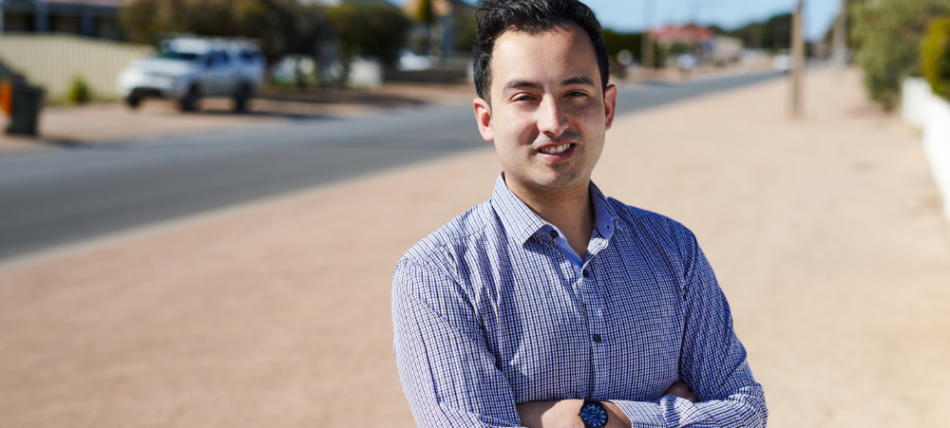A rural generalist with Mental Health, front of mind

As a rural generalist, Dr Wil Daehn had a distinctive interest in the field of Mental health and this combined with a known shortage of these skills especially in regional and rural communities, Wil has pursued his interest and now provide his community with a much need set of specialist skills.
“…I had a specific interest in the field, especially in the causes and the brain chemistry, as well as the presentations and medications available. The other contributing factor to the decision to train in the field was the understanding of a shortage of people who are able to provide these services especially in rural communities.”
Rural Generalism and providing rural minded medicine is all about being able to support a community in need.
Wil comments that practising medicine in the country enables him to utilise his full set of skills, which had not been his experience in urban practice.
I see the profession of Urban and Rural GP as being quite distinctive. In the urban setting, the managing of chronic conditions is a big part of the patient presentations, and setting referrals to other specialists. However, in the rural setting, we see everything, the chronic conditions as well as emergency presentations plus the addition of the specialist skills the team practitioners have chosen to pursue. In my practice, we have the advance skills from mental health, paediatrics, obstetrics and anaesthetics. There are no limits to the skills you can acquire – they will all be valued in the regional community.
“…In the country, you can really build relationships, because you know them and the community, their family and friends, you genuinely care, and you find yourself really striving to do as much as you can to support patients for the well-being of the entire community …”
Wil is based in Kadina, a rural area known as part of the copper triangle, 150km north-west of Adelaide on the Yorke Peninsula. The townships of Moonta and Wallaroo make up the other towns of the triangle, named after the discovery of copper ore in 1859, quickly putting the area on the map.
He sees the benefits of being part of smaller community are as wide and diverse as the medicine he practices. Starting with the joy of a simple eight minute commute to work each day, with no traffic lights which allows him to spend far more time with his wife and young family. The smaller community feels safer, Wil shares, everyone knows you and knows my children, everyone looks out for each other. The air is cleaner, there is less traffic, it’s a great environment to raise children.
The practice in which Wil is part has a team am of very supportive and kind people which is important for creating a positive environment and he feels very pleased to be a part of the community.
“ The benefits go two ways, the community can access specialist services locally which is more cost effective, and you get to practice your learned skills to your full scope.”
At the end of the day, If the driving force for your career is one of job satisfaction, then Rural Generalism is one to consider… the variety, the flexibility and freedom to choose your own way cannot be beaten.
Dr Wil Daehn, Rural Generalist (FRACGP + FARGP + Mental Health)